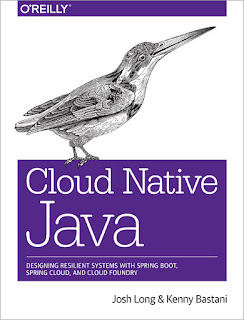On the bright side the book is well organized, written in American English and presents a neat introduction to the three most popular cloud providers Amazon Web Services, Azure and Google Cloud. Although Heroku is not presented, but only mentioned once, neither IBM nor Oracle cloud is even mentioned at all, as if they did not exist... Rainy days for both Oracle cloud and IBM? I only hope that the experts of Sun can develop a solution which is capable of weather (or even climate) modification of the cloud business landscape, or better cloudscape. After all their motto has always been "the network is the computer", or not?
Coming back to the book, the language used to create the sample apps is exclusively Typescript, a stricter version of JavaScript, Visual studio code is the IDE used, along with Kudu, Node, the Serverless Framework for deployment, Mongo DB as NoSQL Database, Postman for testing and GitHub for versioning among others. Prior knowledge of all Rest & Json technologies is assumed, since there is almost no introduction to any, but short descriptions.
On the dark side, the use cases of the applications presented are so simple, that the code of the book is scarcely reusable. The code is at the moment oddly not available online on the publisher's site, but on
Github.
All in all, the author develops a hotel room service order app in each cloud provider, comparing the different terminologies, data stores and costs, warning about possible traps, which might strip your bank account some hefty amounts of money. By the way always keep in mind that opening a personal, not a company, account for learning cloud development sometimes requires giving access to your personal banking details such as your debit or credit card number. At the last chapter an agnostic method of development is presented. The text addresses several issues, such as vendor lock in, but the security issues i.e. of guarding online database data is in my opinion not addressed widely enough.
